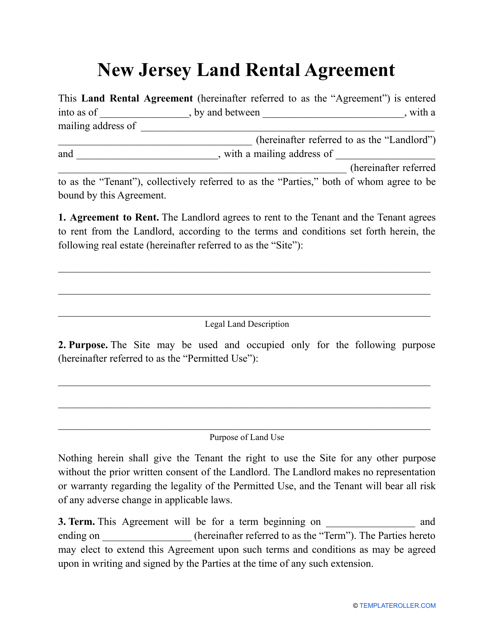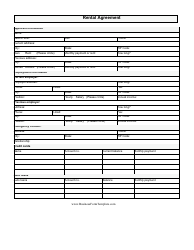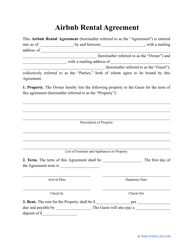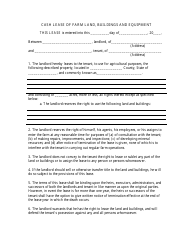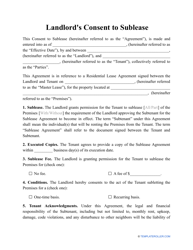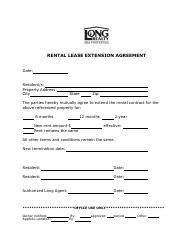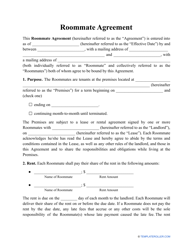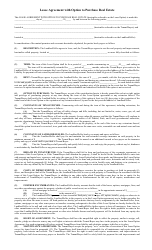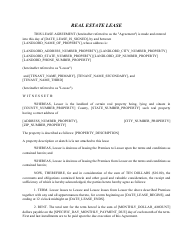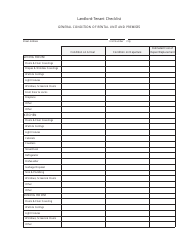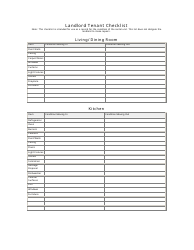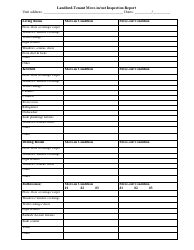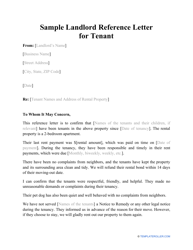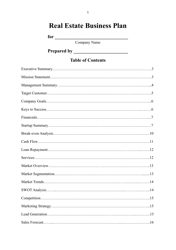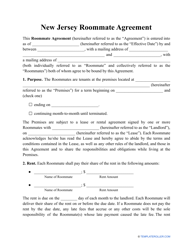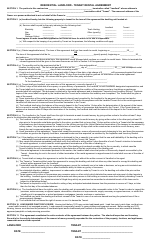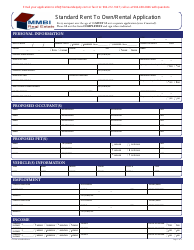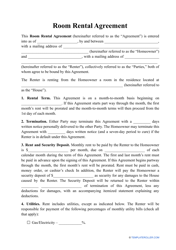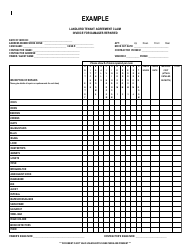Land Rental Agreement Template - New Jersey
A Land Rental Agreement Template in New Jersey is a document that outlines the terms and conditions of renting land in the state of New Jersey. It is used by landlords and tenants to establish a legally binding agreement for the rental of land.
The landlord and tenant both file the Land Rental Agreement Template in New Jersey.
FAQ
Q: What is a land rental agreement?
A: A land rental agreement is a legal contract between a landlord and a tenant for the rental of land.
Q: What does a land rental agreement typically include?
A: A land rental agreement typically includes the names of the landlord and tenant, the description of the land, the rental terms, and any additional provisions.
Q: Is a land rental agreement binding?
A: Yes, a land rental agreement is a legally binding contract.
Q: Can a land rental agreement be verbal?
A: Yes, a land rental agreement can be verbal, but it's always recommended to have a written agreement for clarity and to avoid disputes.
Q: What are the benefits of having a land rental agreement?
A: Having a land rental agreement provides clarity on the rental terms, protects the rights of both the landlord and tenant, and helps resolve any disputes that may arise.
Q: Can a land rental agreement be modified?
A: Yes, a land rental agreement can be modified if both the landlord and tenant agree to the changes and document them in writing.
Q: Can a land rental agreement be terminated early?
A: Yes, a land rental agreement can be terminated early if both the landlord and tenant agree to the termination or if there are specific termination clauses in the agreement.
Q: What happens if a tenant violates the terms of a land rental agreement?
A: If a tenant violates the terms of a land rental agreement, the landlord may have the right to terminate the agreement and seek legal remedies, such as eviction.
Q: What should I do if I have a dispute with my landlord or tenant?
A: If you have a dispute with your landlord or tenant, it's recommended to try to resolve it through communication first. If that doesn't work, you may consider seeking legal advice or assistance from a mediator or attorney.
